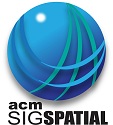
|
The 7th ACM SIGSPATIAL International Workshop Emergency Management using GIS 2021 (EM-GIS 2021) | |||||||
|
|
||||||||
|
Program Safety refers to the stable external environment and orders wherein society and citizens need to engage in and conduct normal life, work, study, entertainment, and communication. Resilience in public safety refers to the ability to withstand the shocks and pressures of emergencies on society, economy, technology systems and infrastructure, and to maintain the basic structure and functions of an emergency event. The Resilience theory is dedicated to enhancing disaster resistance and recovery capabilities as well as improving emergency response capabilities. So that systems, communities, or societies exposed to hazards can resist and absorb by protecting and restoring important basic structures and functions effectively in time. Emergency management serves as an important aspect of Safety and resilience, involving four stages: Planning and Mitigation, Preparedness, Response and Recovery. Geospatial applications (including GIS) have been extensively used in each stage of emergency management. Decision-makers can utilize the geospatial information to develop planning and mitigation strategies. GIS models and simulation capabilities are used to exercise response and recovery plans during non-disaster times. They help the decision-makers understand near real-time possibilities during an event. Once disaster occurs, GIS will take effect in real time response and recovery activities. For example, while global communities are trying to respond to the COVID-19 pandemic, GIS tools are widely used by health departments, safety and emergency management authorities and wider professionals around the world for gathering and analyzing data to support informed decisions. The use of GIS for understanding this outbreak and its relationship to infrastructure, population, businesses and other location-based information, requires both a clear understanding of the relevant geospatial principles and the relevant aspects of data monitoring, planning and mapping. In this way, GIS applications greatly strengthen the abilities of safety and resilience in an anthropogenic incident or a natural disaster. GIS provides reliable support for spatial analysis and decision-making in safety and resilience. However, the incorporation of spatial dimension or spatio-temporal dimension adds to difficulties of the analysis. How to integrate data and models with spatial structures, such as the integration of the GIS data layers and dangerous chemicals diffusion data, appears as a big issue faced by safety and resilience work. Furthermore, safety and resilience requires abilities to make quick response to real-time situations. To meet the requirement, it is challenging and promising to apply lots of new geospatial technologies to support the quick response and recovery and the integrating of location-based wireless information streams. With the advances of GIS technologies, the improvement of safety and resilience research becomes possible. The ACM SIGSPATIAL International Conference on Advances in Geographic Information Systems 2021 (ACM SIGSPATIAL 2021), the twenty eighth edition, will be held in Seattle, Washington, USA, November 3-6, 2020, traditionally holds one-day co-located workshops on the day immediately preceding the first day of the conference, November 3rd, 2020. The purpose of the Workshop on Emergency Management by GIS 2021 is to provide a forum for researchers and practitioners to exchange ideas and progress in related areas. This workshop in the ACM SIGSPATIAL conference addresses the challenges of safety and resilience based on advanced GIS technologies. This workshop will bring together researchers and practitioners in massive spatio-temporal data management, spatial database, spatial data analysis, spatial data visualization, data integration, model integration, cloud computing, parallel algorithms, internet of things, complex event detection, optimization theory, intelligent transportation systems and social networks to support better public policy through disaster detection, response and rescue. Topics of Interest The Workshop on Emergency Management by GIS 2021 welcomes papers that address fundamental research issues in this challenging area, with emphasis on GIS applications associated with safety and resilience. We also encourage papers to report on system level research related to new technologies in GIS, data integration, model integration, disaster detection, response and rescue. A number of invited papers will also be solicited. Topics of interest include, but are not limited to:
All accepted paper will be seen in ACM SIGSPATIAL proceeding. Publications All accepted papers will be embodied in ACM SIGSPATIAL proceeding. Selected papers will be recommended to Data Science Journal (http://datascience.codata.org/) and Journal of Safety Science and Management for possible publication. The authors should be responsible for the possible additional journal publication fee. Award The workshop will offer two Best Paper awards. Each winner will be awarded a certificate with signatures of the workshop co-chairs. Paper Submission We invite two types of submissions in the workshop:
Manuscripts should be submitted in PDF format according to the ACM camera-ready templates available at http://www.acm.org/publications/proceedings-template. Papers must be electronically submitted at the following address: Each paper will be reviewed by at least 3 referees. The workshop proceedings will also be part of the ACM Digital Library. At least one of the authors per accepted workshop paper should register for both the main SIGSPATIAL conference and the workshop,and present the paper in the workshop in order to have the paper included in the workshop proceedings. Important Dates We make the final workshop schedule after communication with the ACM SIGSPATIAL 2021 main conference committee. This is the suggested schedule:
General Chair Workshop Organisers
Co-Chair Workshop Contact Person
Program Committee
Workshop Previous Photos Previous Workshop
|
||||||
|
|
||||||
|
COPYRIGHT June 2020 | Contact: Danhuai Guo |
||||||
